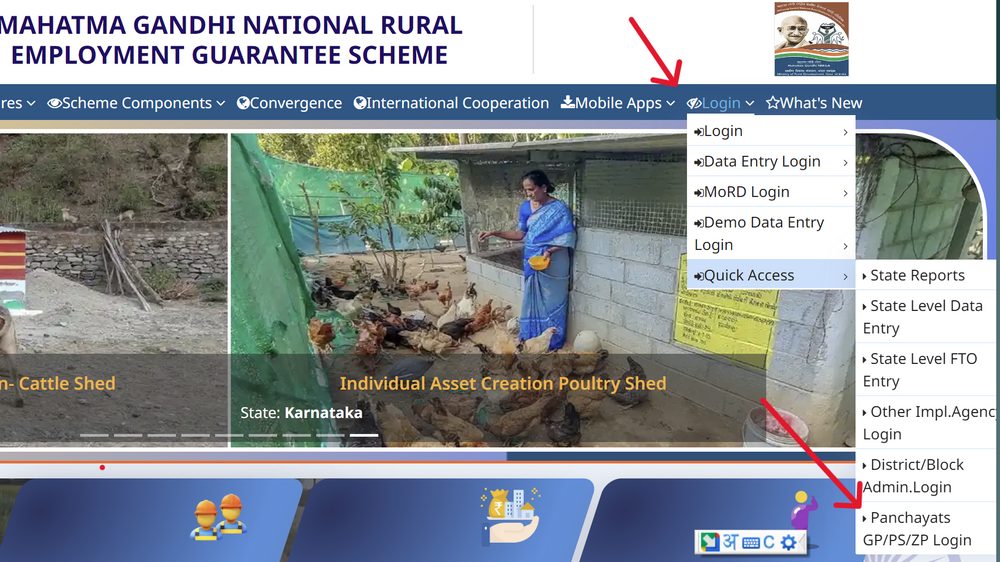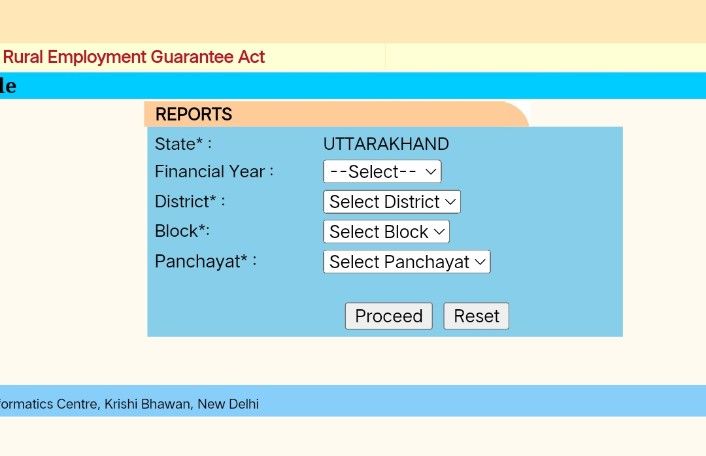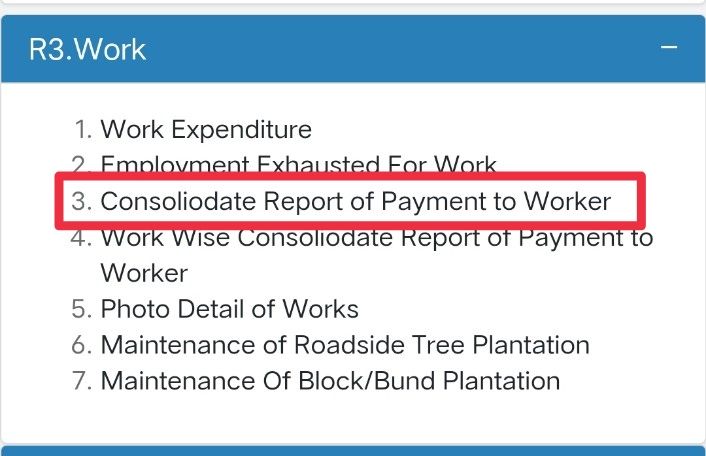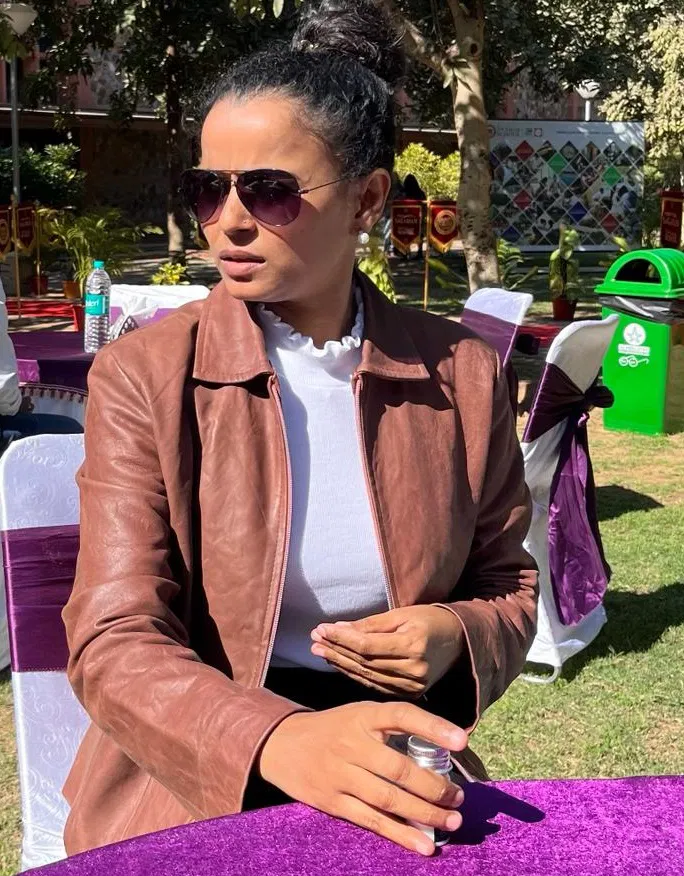How to get NREGA wage list?
Under the Mahatma Gandhi National Rural Employment Guarantee Act (MGNREGA) scheme, eligible rural citizens across India are guaranteed up to 100 days of wage employment per financial year. This initiative ensures that unskilled laborers, who might otherwise be compelled to migrate to urban areas in search of work, can find employment opportunities within their own localities, thereby reducing rural-to-urban migration. By offering jobs at the Gram Panchayat level, the program empowers local communities and contributes to the development of rural infrastructure, such as roads, water conservation systems, and agricultural support projects. NREGA wage list.
In addition to providing crucial livelihood security, MGNREGA plays a vital role in promoting financial inclusion by facilitating direct bank transfers of wages to workers, thus minimizing delays and ensuring transparency in payments. The scheme also emphasizes gender equality by ensuring that women constitute at least one-third of the workforce, contributing to their economic independence.
To further assist beneficiaries, the government has made it possible to check the NREGA wage list and job card status online. Through this platform, individuals can track their workdays, payments, and other important information, ensuring greater transparency and accessibility to the scheme’s benefits. This page will provide comprehensive instructions on how to check the NREGA wage list online, simplifying the process for rural workers to access their employment details efficiently.
How to get Wage List Online?
To access the MNREGA information, you must first visit the official website provided by the Rural Development Ministry of the Government of India at https://nrega.nic.in/. On the homepage, navigate to the ‘Login’ menu and select the ‘Quick Access’ option for a faster login experience.

Once you’re in the Quick Access section, click on the ‘Panchayats GP/PS/ZP Login’ option to proceed. This will redirect you to a new page where you need to select ‘Gram Panchayats.’ After doing so, click on ‘Generate Reports’ to move forward.
Next, choose your state from the dropdown menu on the new page. You’ll also be prompted to select the financial year, district, block, and your specific Gram Panchayat. After filling in these details, click the ‘Proceed’ button to continue.
In the next section, navigate to the ‘R3. Work’ category and select the option labeled ‘Consolidate Report Of Payment To Worker.’ Once you choose this, a new page will open where you’ll need to select either the work code or the name of the work you’re looking for. This page will provide comprehensive details related to the work, including its status and the Total Muster Rolls (Muster Roll No.).

At this point, you can review the payment status for the specific work. If the payment has already been made, a detailed list of payments will be available for viewing. The report will provide key information, including:

- Village Name
- Job Card No.
- Name of Applicant
- Father’s/Husband’s Name
- Name of Work (with Work Code)
- Number of Days Employment Provided
- Amount Earned (in Rs.)
This detailed process helps ensure transparency and allows users to track payments and work progress under MNREGA, ensuring accountability for workers and administrators alike. Additionally, by following these steps, individuals can monitor if they or others in their area have received the appropriate payments for their labor, which is a crucial part of ensuring the scheme’s effectiveness.

An alumna of the Indian Institute of Mass Communication, Dhenkanal, Sunita Mishra brings over 16 years of expertise to the fields of legal matters, financial insights, and property market trends. Recognised for her ability to elucidate complex topics, her articles serve as a go-to resource for home buyers navigating intricate subjects. Through her extensive career, she has been associated with esteemed organisations like the Financial Express, Hindustan Times, Network18, All India Radio, and Business Standard.
In addition to her professional accomplishments, Sunita holds an MA degree in Sanskrit, with a specialisation in Indian Philosophy, from Delhi University.